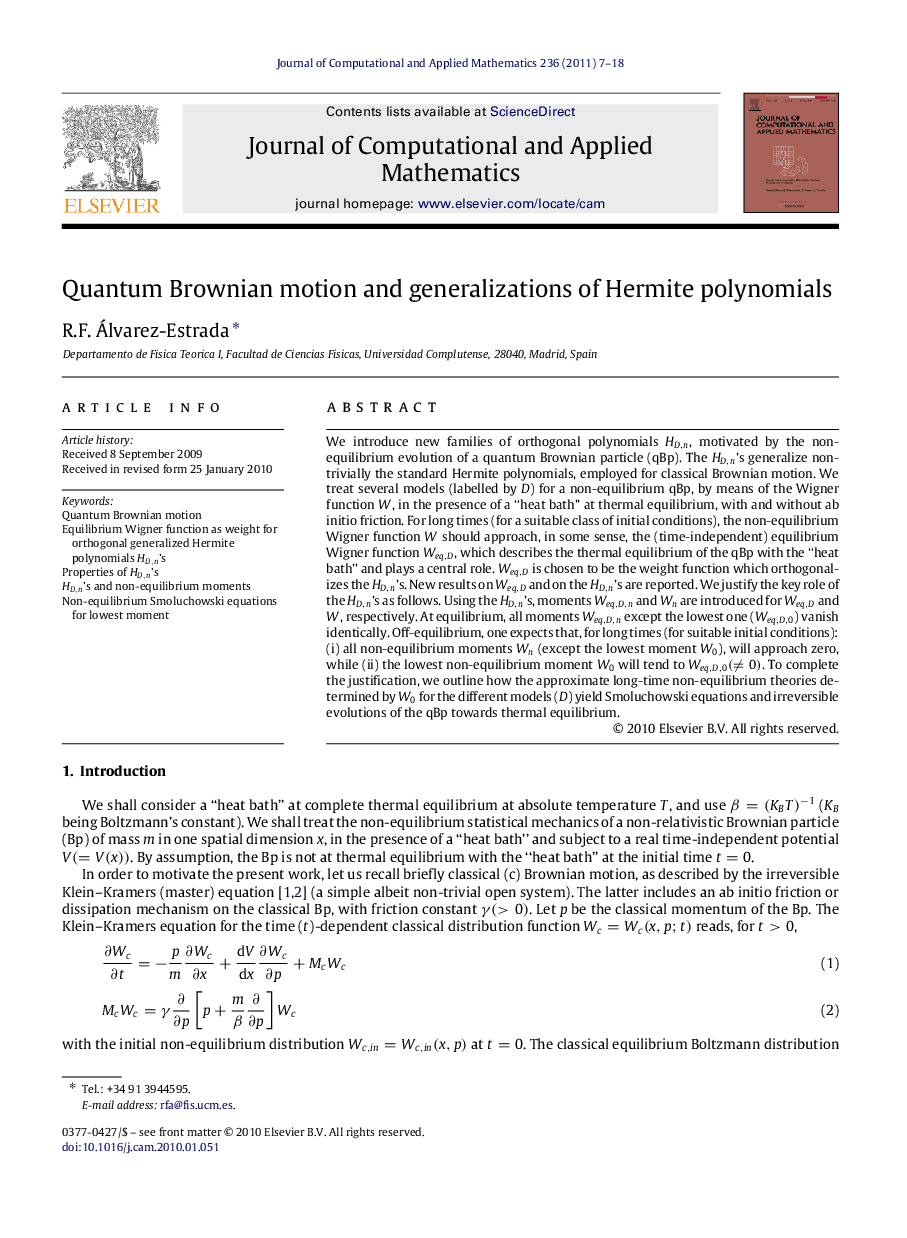| Article ID | Journal | Published Year | Pages | File Type |
|---|---|---|---|---|
| 4639746 | Journal of Computational and Applied Mathematics | 2011 | 12 Pages |
Abstract
We introduce new families of orthogonal polynomials HD,n, motivated by the non-equilibrium evolution of a quantum Brownian particle (qBp). The HD,n's generalize non-trivially the standard Hermite polynomials, employed for classical Brownian motion. We treat several models (labelled by D) for a non-equilibrium qBp, by means of the Wigner function W, in the presence of a “heat bath” at thermal equilibrium, with and without ab initio friction. For long times (for a suitable class of initial conditions), the non-equilibrium Wigner function W should approach, in some sense, the (time-independent) equilibrium Wigner function Weq,D, which describes the thermal equilibrium of the qBp with the “heat bath” and plays a central role. Weq,D is chosen to be the weight function which orthogonalizes the HD,n's. New results on Weq,D and on the HD,n's are reported. We justify the key role of the HD,n's as follows. Using the HD,n's, moments Weq,D,n and Wn are introduced for Weq,D and W, respectively. At equilibrium, all moments Weq,D,n except the lowest one (Weq,D,0) vanish identically. Off-equilibrium, one expects that, for long times (for suitable initial conditions): (i) all non-equilibrium moments Wn (except the lowest moment W0), will approach zero, while (ii) the lowest non-equilibrium moment W0 will tend to Weq,D,0(â 0). To complete the justification, we outline how the approximate long-time non-equilibrium theories determined by W0 for the different models (D) yield Smoluchowski equations and irreversible evolutions of the qBp towards thermal equilibrium.
Keywords
Related Topics
Physical Sciences and Engineering
Mathematics
Applied Mathematics
Authors
R.F. Álvarez-Estrada,
